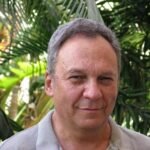Tel Aviv: The Iranians have recently supplied upgraded version of their home made ballistic missiles to their proxy in Yemen, the Houthi rebels. The Saudi-led Arab coalition operating in Yemen has announced the interception of 5 ballistic missiles launched by the Houthi militia towards the Jizan area in the south of the kingdom.
The coalition said in a tweet released by the Saudi press agency (SPA) that the Saudi air defence system intercepted and destroyed 5 ballistic missiles fired by the Yemeni militia at Jizan. It comes one day after the Houthi militia attacked Saudi Arabian Abha International Airport. The coalition noted that it had thwarted the Houthi militia’s hostile attempts to harm civilians and civilian targets.
The Houthi rebels have recently stepped up their attacks on southern Saudi cities using drones and ballistic missiles. On Wednesday, the coalition announced the interception and destruction of an explosive drone that tried to attack Abha International Airport, the Saudi news agency was quoted as saying. In early October, the Houthi militia launched an attack on Jizan International Airport, injuring 10 people.
Since 2015, Saudi Arabia has led a military coalition in support of the internationally recognized Yemeni government, which has been involved in a bloody conflict with Iran-backed Houthi rebels since taking over the capital Sanaa and other areas in 2014. The conflict in Yemen has killed tens of thousands of people, including many civilians, and caused the world’s worst humanitarian crisis, according to the UN.
Israeli experts say that the Houthis probably used the Burkan-2H. According to missile threat organization this is a mobile short-range ballistic missile very similar to the Iranian Qiam Missile (part of the Scud family), with about 12 m of height. Around the beginning of 2017, Iran begun transferring Qiam-1 missiles to Yemen’s Houthi militants as the “Burkan-2H”. On July 22, 2017, Houthi rebels fired a Burkan-2H missile for the first time, targeting an oil refining facility in Yanbu, Saudi Arabia.
-The writer is an Israel-based freelance journalist. The views expressed are of the writer and do not necessarily reflect the views of Raksha Anirveda









